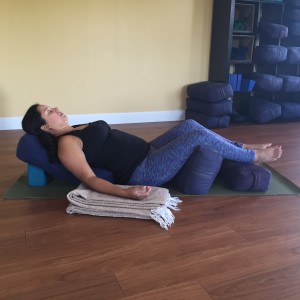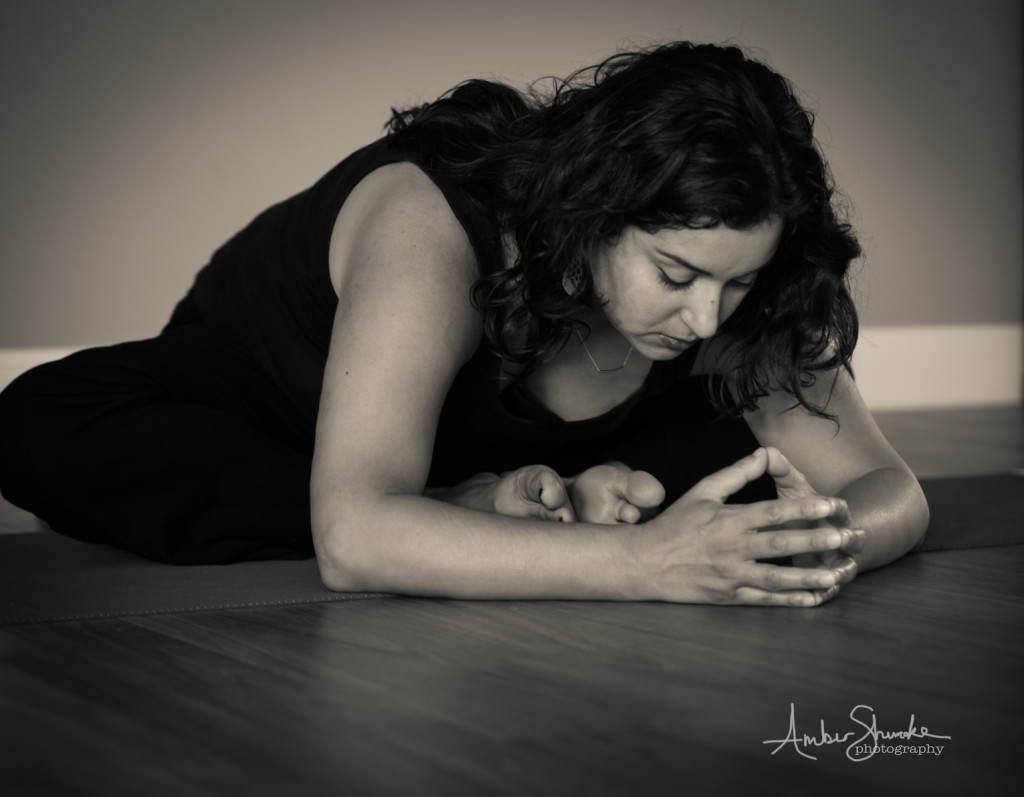I had a private lesson yesterday with two lovely women, friends who have had the good fortune of being workout buddies for a long time. They have a fun sense of humor and they’re used to working out hard with their trainer, which of course is awesome and so great for their health. They came to us for a private lesson with a couple of goals in mind: 1. To find out if they like yoga, and 2. To learn enough that they could transition into regular yoga classes.
These two ladies breezed through the first 45 minutes of the practice. We worked on chest openers, hip openers, strengthening, and balance. The physical part of the practice was a piece of cake for them, since they are so adept at using their bodies.
But when we transitioned to the relaxation part of the practice, something changed. Relaxation is something these two great ladies don’t typically practice, and it took a conscious shift in their mindsets to help them get comfortable with the idea of doing nothing.
One woman joked that she felt “guilty and naughty, like [she] should be doing chores at home.” And they laughed about not telling their trainer about this relaxation experience, because she might make them work harder in their next workout. It was all in fun, of course, but it spoke to a deeper truth in our society: Learning to relax is hard work.
This theme has come up consistently with the students in my lessons and classes lately. As a society, we are skilled at working hard, but we’ve never learned to relax. We perceive value in hard work and we equate relaxation with laziness. But the fact of the matter is that we need balance. Just like how in our asana practice we strive to balance effort and ease, so must we do in our lives.
If we spend our lives in a cycle of hard work and stress, we run the risk of poor health, a short life, or sadly, both.
 But the good news is that relaxation practices can help undo some of the harmful effects of stress. Some of our regular, long-term students have managed their stress and improved their health so much that their doctors have reduced or even eliminated their blood pressure or diabetes medication. There are real benefits to learning how to relax.
But the good news is that relaxation practices can help undo some of the harmful effects of stress. Some of our regular, long-term students have managed their stress and improved their health so much that their doctors have reduced or even eliminated their blood pressure or diabetes medication. There are real benefits to learning how to relax.
And please know that knowing how to relax is not inherent to us as humans. It needs to be practiced and learned. I teach yoga for a living, and even I struggle with relaxation sometimes.
Just this morning, I had a very stressful time getting out the door with my kids. I dropped them off at their summer camp and as I was driving back home I was thinking about the long list of things I need to do today. It was a real challenge for me decide to pull into the studio so I could have a few minutes to move, breathe, relax, and reset, before beginning my work today.
But here’s the thing. We must take care of ourselves first, or we eventually wear ourselves out and can’t do a great job at anything.
For example, when I’m too tired and stressed, I’m a distracted and short tempered mom, a less present and less beneficial Yoga teacher, and an unfocused and inefficient business person.
From a productivity perspective, it’s so worthwhile to consistently practice relaxation and create an element of ease in your life, especially for busy people. Because when your mind is at ease you are more focused, more creative, and your mind is sharp. You can get more done. And ultimately, who doesn’t want that?
So even if it seems next to impossible, please try to build some relaxation into your life. Make time for a hot bath in the tub (Epsom salt rocks!), or go to bed early, or wake up early so you have a few minutes to practice breathing before you start your day.
Or come in and see us. We have all sorts of ways to teach relaxation. You can choose from private lessons or yoga classes, or we have a meditation workshop coming up on Saturday, or if you’re brand new you might want to try a Beginners Series.
Browse around our website to find something that feels like the right fit for you right now. And if you’re not sure where to start, or if the idea of relaxing sounds intimidating, just send me a note. I’ll be honored to help.

XO, Zelinda


